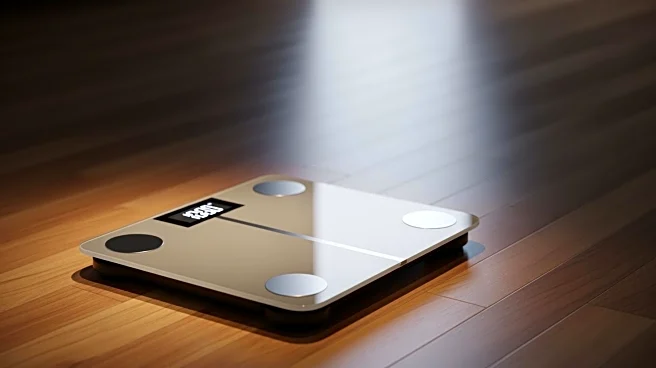What's Happening?
Smart scales are becoming increasingly popular for their ability to provide users with a range of health metrics beyond just weight, such as heart rate, bone mineral density, and body fat percentage. However,
experts caution that these devices may not offer the same level of accuracy as traditional methods like dual-energy X-ray absorptiometry (DXA) scans. Stella Lucia Volpe, a professor at Virginia Tech, emphasizes that while smart scales can estimate body fat and total body water, they should not be considered as precise as DXA scans. Users are advised to weigh themselves consistently under the same conditions to get the most reliable readings. Despite their limitations, smart scales can still offer valuable insights for those who do not have access to more advanced medical assessments.
Why It's Important?
The rise of smart scales reflects a growing consumer interest in personal health monitoring and fitness tracking. These devices offer a convenient way for individuals to track their health metrics at home, potentially encouraging healthier lifestyle choices. However, the lack of precision in smart scale measurements could lead to misconceptions about one's health status, particularly if users rely solely on these devices for health assessments. This underscores the importance of understanding the limitations of consumer health technology and the need for complementary professional medical evaluations. The trend also highlights the broader movement towards digital health solutions and the potential for technology to play a role in personal health management.
What's Next?
As consumer demand for health monitoring technology continues to grow, manufacturers may invest in improving the accuracy of smart scales. This could involve integrating more advanced sensors or developing algorithms that better account for individual variations in body composition. Additionally, there may be increased collaboration between tech companies and healthcare providers to ensure that consumers receive accurate and useful health information. Users are encouraged to remain informed about the capabilities and limitations of their devices and to seek professional medical advice when necessary.
Beyond the Headlines
The popularity of smart scales is part of a larger trend towards self-monitoring and the quantification of personal health data. This movement raises questions about data privacy and the ethical use of health information collected by consumer devices. As more people turn to technology for health insights, there is a growing need for clear guidelines on data security and the responsible use of personal health data. Furthermore, the reliance on technology for health monitoring may influence how individuals perceive their health and wellness, potentially shifting the focus from holistic health practices to data-driven metrics.









